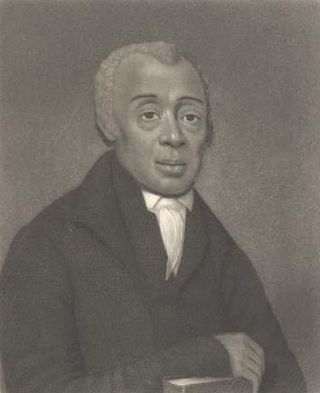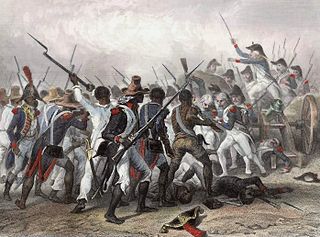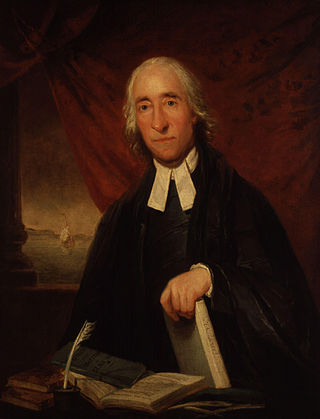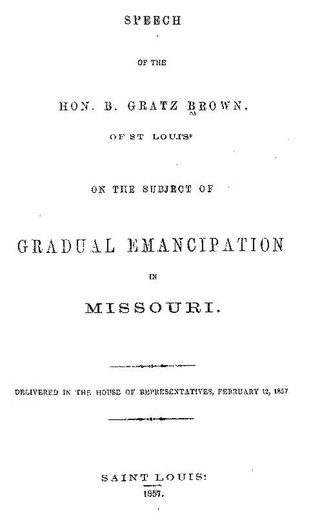
Suffield is a town in Hartford County, Connecticut, United States. The town is part of the Capitol Planning Region, and located in the Connecticut River Valley. As of the 2020 census, the population was 15,752. The town center is a census-designated place listed as Suffield Depot.

Richard Allen was a minister, educator, writer, and one of the United States' most active and influential black leaders. In 1794, he founded the African Methodist Episcopal Church (AME), the first independent Black denomination in the United States. He opened his first AME church in 1794 in Philadelphia.

Joseph Platt Cooke was an American military officer in the Revolutionary War, a Connecticut politician, and twice a delegate to the Congress of the Confederation. He was born in Stratford, Connecticut and graduated from Yale College in 1750. He died in Danbury, Connecticut.

In the United States before 1865, a slave state was a state in which slavery and the internal or domestic slave trade were legal, while a free state was one in which they were prohibited. Between 1812 and 1850, it was considered by the slave states to be politically imperative that the number of free states not exceed the number of slave states, so new states were admitted in slave–free pairs. There were, nonetheless, some slaves in most free states up to the 1840 census, and the Fugitive Slave Clause of the U.S. Constitution, as implemented by the Fugitive Slave Act of 1793 and the Fugitive Slave Act of 1850, provided that a slave did not become free by entering a free state and must be returned to his or her owner.

The Baptist War, also known as the Sam Sharp Rebellion, the Christmas Rebellion, the Christmas Uprising and the Great Jamaican Slave Revolt of 1831–32, was an eleven-day rebellion that started on 25 December 1831 and involved up to 60,000 of the 300,000 slaves in the Colony of Jamaica. The uprising was led by a black Baptist deacon, Samuel Sharpe, and waged largely by his followers. The revolt, though militarily unsuccessful, played a major part in the abolition of slavery throughout the British Empire.

Elihu Burritt was an American diplomat, philanthropist, social activist, and blacksmith. He was also a prolific lecturer, journalist and writer who traveled widely in the United States and Europe.

The fugitive slave laws were laws passed by the United States Congress in 1793 and 1850 to provide for the return of enslaved people who escaped from one state into another state or territory. The idea of the fugitive slave law was derived from the Fugitive Slave Clause which is in the United States Constitution. It was thought that forcing states to deliver fugitive slaves back to enslavement violated states' rights due to state sovereignty and was believed that seizing state property should not be left up to the states. The Fugitive Slave Clause states that fugitive slaves "shall be delivered up on Claim of the Party to whom such Service or Labour may be due", which abridged state rights because forcing people back into slavery was a form of retrieving private property. The Compromise of 1850 entailed a series of laws that allowed slavery in the new territories and forced officials in free states to give a hearing to slave-owners without a jury.

William Loughton Smith was an American lawyer, politician, and diplomat from Charleston, South Carolina. He represented South Carolina in the United States House of Representatives from 1789 until 1797, during which time he served as chairman of the Committee on Ways and Means.

Rev. James Ramsay was a Scottish ship's surgeon, Anglican priest, and leading abolitionist in Great Britain.

Black Patriots were African Americans who sided with the colonists who opposed British rule during the American Revolution. The term "Black Patriots" includes, but is not limited to, the 5,000 or more African Americans who served in the Continental Army and Patriot militias during the American Revolutionary War.
Adonijah Bidwell was the first minister of Housatonic Township No. 1. He played a large role in the formation and upkeep of the Monterey, Massachusetts militia. Classically educated at Yale, he participated in the victorious Louisbourg, Nova Scotia expedition during the third French and Indian War. He is known today in part because his sermons and diary were preserved and give detailed insight into his life.

Slavery played the central role during the American Civil War. The primary catalyst for secession was slavery, especially Southern political leaders' resistance to attempts by Northern antislavery political forces to block the expansion of slavery into the western territories. Slave life went through great changes, as the South saw Union Armies take control of broad areas of land. During and before the war, enslaved people played an active role in their own emancipation, and thousands of enslaved people escaped from bondage during the war.

The exact date of the first African slaves in Connecticut is unknown, but the narrative of Venture Smith provides some information about the life of northern slavery in Connecticut. Another early confirmed account of slavery in the English colony came in 1638 when several native prisoners were taken during the Pequot War were exchanged in the West Indies for African slaves. Such exchanges become common in subsequent conflicts.

Titus Kent was an enslaved man in colonial Suffield, Connecticut, the father of Titus Gay and a Connecticut militiaman in the American Revolutionary War. Kent served with his enslaver, Elihu Kent (1733–1814), and with others from Suffield, Connecticut.

In the United States, abolitionism, the movement that sought to end slavery in the country, was active from the late colonial era until the American Civil War, the end of which brought about the abolition of American slavery for non-criminals through the Thirteenth Amendment to the United States Constitution.

The Ebenezer Gay House, also known locally as the Gay-Hoyt House, is a historic house museum at 18 Main Street in Sharon, Connecticut. Built in 1775, it is a well-preserved example of Georgian colonial architecture in brick. It was listed on the National Register of Historic Places in 1979, and is part of the Sharon Historic District, listed in 1993. It is now home to the Sharon Historical Society.

The Free African Union Society, founded in 1780 in Newport, Rhode Island, was America's first African benevolent society. Founders and early members included Prince Amy, Lincoln Elliot, Bristol Yamma, Zingo Stevens and Newport Gardner.

James Mars was an American slave narrative author and political activist. Born into slavery in Canaan, Connecticut, he gained his freedom in 1811. In 1864, he published his memoir A Life of James Mars, a Slave Born and Sold in Connecticut, Written by Himself—a notable example of the slave narrative genre. His grave is a stop on the Connecticut Freedom Trail. In 2021, Governor Ned Lamont declared May 1 to be James Mars Day in Connecticut.

Gradual emancipation was a legal mechanism used by some states to abolish slavery over some time, such as An Act for the Gradual Abolition of Slavery of 1780 in Pennsylvania.
Noah Ebenezer Zane was an American pioneer and politician. Born near Fort Henry, he represented several western Virginia counties in the Virginia Senate during the War of 1812.















